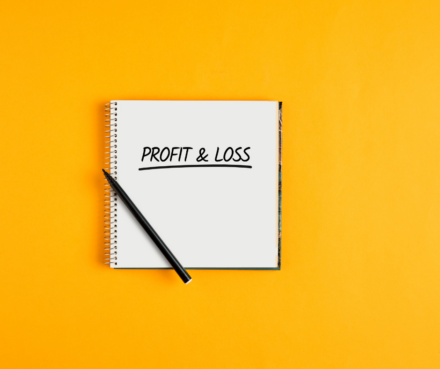
Calculating ‘loss of profit’ in a business dispute
22nd April 2024 by Brendan Herbert
If you are involved in a business dispute which has reached the point of discussing loss of profit, then it may be more complicated than you expected to come to an agreed figure. When a court awards damages, the sum determined is intended to compensate you, rather than to punish your opponent, and the objective is to place you in the same position as if the contract had not been breached.
‘Calculating the loss of profit correctly in a commercial dispute is essential, and a miscalculation could be very costly and could even defeat the object of the litigation,’ says Brendan Herbert, head of Dispute Resolution at Laceys Solicitors.
Brendan looks at how loss of profit is calculated in a commercial dispute, and in particular the methodology that will be applied by a court.
Illustration with a breach of contract
To illustrate the complexity, we will consider a breach of contract claim where loss of profits might be relevant. For example, if a manufacturer of machines is claiming a breach of contract by a supplier whose parts were not fit for purpose, or not supplied at all. An alternative supplier had to be found, causing a delay in production and a consequent delay in sales, and an important order could not be fulfilled in time which has affected profits.
What is considered to be ‘profit’?
To calculate actual losses, the starting point will be to compare actual profits made, compared to what the company believes would have been the profit figure had the breach not occurred.
It is also necessary to consider anticipated losses. For this you will need to prepare a forecast based on expected revenue and expected costs.
In very simple terms ‘profit’ is the difference between the price you achieve for the sale of your goods less the amount it cost to provide those goods. Of course, many factors lie beneath these figures which need to be considered to calculate the actual profit, and therefore the actual loss, that would have been achieved if a breach had not occurred.
The court will look at a variety of factors, including:
- direct and indirect costs;
- production capacity and whether parts could be sourced elsewhere;
- mitigation of loss;
- taxation; and
- external market factors.
If a considerable loss is at stake and the calculation involves a number of variables, to ensure that the figure is as accurate as possible it may be appropriate for us to work with a forensic accountant on your behalf.
It is for you to prove your loss, but the court will bear in mind that this is not an exact science.
Key variables
Key issues to take into account include:
- Relevant period – The start of the period of the loss is usually the date on which the breach first occurred, but the end of the period is harder to establish. For example, it may end when the breach is rectified, or when the contract terminates, or when a replacement is found that allows for the profit potential to resume.
- Production capacity – One of the factors the court will take into account is the usual production capability of the company which dictates what the company can and does usually produce. It is possible that a company may have decided to expand their production with the supply that they are missing, and if so there must be an element attributed to this loss too. Were you intending to expand and have been prevented from doing this by the breach?
- Sales price – Determining what the sales price would reasonably be for this product in this market is easier to establish if you have already been selling products at a particular price. If not, you will need to prove what a realistic sales price would be for your products, based on factors such as previous invoices, market information, whether there is a current contract for sale that might set out the sale price, and what are your competitors selling for.
- Costs – If replacement parts were not found and the loss of profit is wholescale, those losses may be offset by the fact that you require less staff or less equipment or premises. This may have a knock-on effect on other expenses, such as insurance.
- Mitigation – If it is possible to mitigate your loss, for example by obtaining a supply elsewhere, or making a reduction in staffing levels, you will be expected to do so. For example, if you managed to source a supply of parts elsewhere then the loss in profit may simply be a reduction rather than full loss. Alternatively, if you were not able to produce the machines at all, you may claim full loss of profit. Once you have mitigated to the extent that you are able to move back to making profits, the period of loss will usually end.
- Taxes – Against any loss of sales and loss of profit, it is necessary to take into account the gain made by not incurring any tax on those profits.
- External factors – There may be other factors that contributed to your loss apart from the breach, and the court will look at these when assessing the level of damages. For example, if the market has crashed and your machines are unlikely to make the anticipated level of profit. Alternatively, a lack of supply by competitors could mean profits might have been set to increase.
- Cash flow benefit – Depending on the timing, the court is also likely to adjust the award to take into account that you will be getting a guaranteed fixed sum, and you may benefit from the fact that this money will be received earlier than usual.
Remember, you can only claim damages to be put back into the position you would have been in had the breach not occurred.
How we can help
If you believe you have lost profit as a result of a commercial dispute, as well as being owed damages for your claim, speak to one of our team. Our solicitors have many years of experience in taking and defending claims for our clients, and can guide you through the court process, including how to assess your damages to maximise your claim and ensure that you make the full claim that you are entitled to.
For further information, please contact Brendan Herbert on 01202 377810 or via email at b.herbert@laceyssolicitors.co.uk
This article is for general information only and does not constitute legal or professional advice. Please note that the law may have changed since this article was published.



